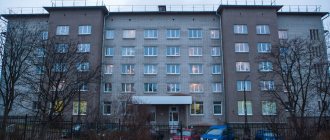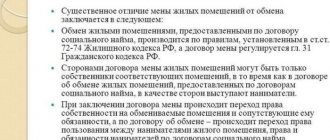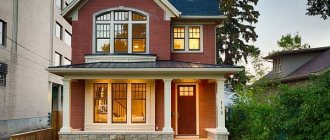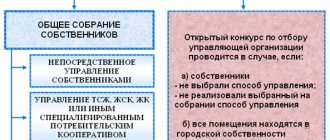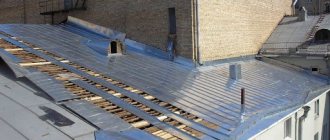The rules for the use of houses and apartments are established by Decree of the Government of the Russian Federation dated January 21, 2006 No. 25. The document outlines the main restrictions on the methods of using housing, as well as the rights and obligations of the persons living in it.
We will tell you about the basic rules for the use of residential premises in 2019-2020, we will name the circle of persons to whom they apply, and we will analyze Resolution No. 25 and the latest changes made to it.
Document overview
The legislation classifies as residential premises all real estate that is suitable for people’s lives (these are apartments, houses, rooms, etc.). When using objects, certain rules must be followed. Residential premises in an apartment building can not only be owned by a citizen; the law also provides for rent, social rent, etc., but everyone must comply with living standards.
The rules for the use of residential premises in an apartment building in 2019-2020 indicate the requirements for persons who use housing on the basis of:
- social hiring;
- provision of specialized housing (as a rule, these are service apartments provided for the period of work or study, as well as for temporary residence of persons without a roof over their head, refugees, etc.);
- rental of residential premises of housing funds for commercial use (including state, municipal).
Document confirming ownership of an apartment in 2019-2020 - extract from the Unified State Register of Real Estate
Regardless of which of the above categories the tenant belongs to, he must fulfill the following requirements when living in the house:
- Use the home for its intended purpose. For people who use residential premises under a rental agreement, this is often only accommodation. Apartment owners have greater rights and opportunities. They can sell their home, donate it, rent it out, etc.
- Take measures to keep the apartment or other residential premises in good condition.
- Maintain order and cleanliness.
- Pay for the maintenance of the apartment on time. For persons who live in residential premises on a rental basis, payment is made only for the maintenance of the apartment and the provision of utilities. But the owners must also pay certain costs for maintaining the property of an apartment building.
- Routine repairs of premises if necessary. If for tenants it must be within the framework of maintaining the residential premises in a condition suitable for habitation (i.e., refurbishment and reconstruction are not allowed), then apartment owners are free to do repair work in the premises at their own discretion. They can also carry out redevelopment, but such work is subject to further registration with government agencies.
Internal rules for living in the Village
Approved by the minutes of the general meeting dated August 3, 2018.
These Internal Rules (hereinafter referred to as the “Rules”) are an internal document of the village of MFZHK “Angelovo-Residence” (hereinafter referred to as the “Village”) and are mandatory for compliance by all residents of the village of MFZHK “Angelovo-Residence” (hereinafter referred to as “Users”) , as well as any other persons permanently or temporarily using real estate on the territory of the Village for residential purposes, including any guests and invited persons.
1. General Provisions
1.1. These Rules are aimed at ensuring high standards of living in the village based on the principles of self-organization of Users.
1.2. The rules are an open document. Any interested person can familiarize himself with the text of these Rules. TSN is interested in distributing and promoting these Rules among the population of the Village.
1.3. Each User is obliged to make all possible reasonable efforts to comply with these Rules, both personally and through any influence on his family members, neighbors, persons living in the territory of the Village, as well as persons temporarily staying in the territory of the Village.
1.4. Users must make every effort to avoid conflict situations, and if they arise, to resolve them as quickly as possible. In any case, the actions of Users must not violate the legal rights and interests of the residents of the Village.
2. The procedure for ensuring access control 2.1. In order to ensure control over the entry/exit of persons, vehicles, import/export of material assets into the territory of the Village, TSN organizes access control to the territory of the Village and establishes the Procedure for travel through the territory of the Village.
There are two checkpoints in the village:
— PKPP (Pedestrian) – intended for entry/exit to/from the territory of individuals (except for Builders);
— TsKPP (Central) – designed for entry/exit to/from the territory of individuals of all categories, as well as entry/exit to/from the territory of passenger and cargo vehicles.
2.2. The access regime consists of checking at the checkpoint whether persons visiting the territory of the Village have passes of the established form or identification documents, as well as checking the legality of the import/export into/from the territory of the Village of inventory items.
2.3. Access control is provided by a specialized organization engaged by TSN (hereinafter referred to as “Security”).
2.5. Access to the territory of the Village is carried out using permanent and temporary (one-time) passes of the established form, issued by TSN.
2.6. The passage and travel to the territory of the Village of representatives of state and administrative bodies in the performance of their official duties is carried out using official identification documents. Security must accompany representatives until they leave the territory.
2.7. Fire trucks, ambulances with personnel called to the Village, when going to a fire (accident, emergency) with flashing lights turned on and the sound signal “siren” sounding, are allowed through the checkpoint, accompanied by security officers.
2.8. Passage/entry into the territory of persons not residing in the Village (guests, visitors) is carried out using a temporary one-time pass. Access to the territory is carried out with identification documents. A one-time pass is issued in advance at the checkpoint in the guest register upon presentation of a resident's pass.
2.9. When vehicles enter/exit the territory of/from the territory of the Village, Security has the right to check them for the import/export of inventory items. If a security officer has doubts about the legality of the import/export of material assets, he has the right not to allow the vehicle to pass until the circumstances are clarified.
2.10. The following persons are not allowed to enter the territory: without issued passes; under the influence of alcohol or drugs (except for Users and members of their families).
2.11. Work passes on weekends (Saturday and Sunday) and holidays are suspended.
3. Appearance of land plots and houses in the Village
The external appearance of the development is the common property of all users and indicates the level of amenities and quality of living conditions. Under the influence of the environment, children's aesthetic perception is formed; for the rest of their lives, they develop a caring attitude towards their habitat, a desire to preserve its beauty and natural environment.
3.1. Each User is obliged to ensure a decent appearance of the land plot in his use, so that it does not discord with the surrounding buildings and corresponds to the architectural design approved in the prescribed manner.
3.2. Users are required to keep the facades of houses on their sites in order: the facades should not have potholes and chips, peeling paint and stains, all architectural details (decorations) of the facade should be intact, the color of the facade should not violate the overall color scheme. Air conditioners should be installed on the roof or on the ground in agreement with the neighbors. Installation of air conditioners on facades is not allowed.
3.3. The use of home ownership for commercial purposes is not permitted, except in cases of rental for residential purposes. The Landlord is required to provide TSN with a copy of the Lease Agreement and the tenant's contact information, and ensure that the tenant receives a copy of these rules for living in the Village. The lease agreement must provide for the tenant's compliance with these Rules.
3.4. It is prohibited to store (including temporary) waste anywhere near a household or on the territory of the Village.
3.5. Posting notices or hanging laundry on the street is not allowed. Trampolines are not allowed to be placed at front entrances.
4. Coordination of construction work on the territory of the Village
4.1. Any construction work on the territory of the Village, as well as landscaping work, is possible after agreement with TSN, including in order to prevent damage to utilities.
4.2. The approval procedure pursues the sole purpose of complying with the general concept of the architectural appearance and interests of neighbors. It is not allowed to hang air conditioners and antennas on the facades of houses.
4.3. Before the start of construction and repair work, the user provides TSN with a list of persons who will be involved in the work.
4.3.1. The list must include full name, passport details, citizenship and registration address (foreign workers must be provided with copies of documents certifying registration at the place of residence, as well as permission to work in the Moscow region). All persons involved in the work must be provided with copies of passports. Data on vehicles used for construction and repair work is also provided.
4.3.2. The result of the approval of this list will be a pass (colored badge) for workers to enter the territory of the village to carry out work. (NEW). The color badge is an indicator of the quarter of work. If the badge holder is outside the quarter indicated on it, the pass will be cancelled.
4.3.3. The user draws up a Letter of Guarantee, in which he undertakes to compensate for all material damage that may be caused due to the presence of workers hired by him on the territory. (NEW). Deposit.
4.3.4. The user indicates sources of water, electricity and WC for workers.
4.4. When carrying out repair work outside the household, the user is obliged to:
- notify neighbors about the start of work,
— install fencing of the work area,
- cut tiles/paving stones strictly in the garage using water,
- keep public areas clean.
4.5. Walking around the territory of the village for workers is prohibited between 21.00 and 8.00.
4.6. Residence of workers on the territory is prohibited, with the exception of registration at the place of repair work.
4.7. External repair work is prohibited on weekends and holidays, with the exception of landscaping work. Landscaping work is permitted with the consent of neighbors.
4.8. It is prohibited to transport unregistered workers in vehicles.
4.9. If the points of this section are not observed, TSN has the right to cancel worker passes.
5. Noise control
The noise level is an important psychophysiological factor that has a direct effect on the health and well-being of people. The distance from noisy city streets and the low building density of the Village territory significantly reduce the level of noise impact on residents, which is one of the main advantages of living in the Village.
5.1. On the territory of the Village, everyone is required to maintain silence and avoid unreasonable noise levels, in accordance with the Law on Silence of the Moscow Region dated March 7, 2014 N 16/2014-OZ (version 11.2017).
5.2. Noise control is carried out by residents and security staff.
5.3. Construction work with a high noise level is allowed to be carried out only from 9.00 to 19.00 on weekdays, with the exception of landscaping work.
5.4. In the event of noisy events taking place on the territory of the household during a period of time not specified by these Rules, the User is obliged to coordinate the planned events with neighbors and TSN no later than 7 days in advance.
5.5. Festive and special events are held near the property by prior agreement with the Neighbors.
6. Use of roads within the Village
6.1. The roads on the territory of the Village are intended exclusively for the passage of passenger vehicles. Driving through the territory of the Village of trucks and other heavy transport equipment is possible only to carry out special functions such as garbage and household waste removal, street cleaning, snow removal, as well as in emergency cases to prevent and/or eliminate the consequences of emergency incidents, provide emergency medical care, ensuring public safety.
6.2. In exceptional cases, it is possible for trucks to travel and briefly stay on the territory of the Village to load and unload the property of the residents of the Village, as well as to support the construction process.
6.3. Drivers parking cars on the territory of the Village must not block the passage of vehicles or roads for the passage of emergency vehicles. Parking of cars on pedestrian paths, sidewalks, and lawns is prohibited.
6.4. Drivers of vehicles are required to observe the speed limit in the village: no more than 20 km/h. Movement by vehicle within the territory of the village can only be carried out for the purpose of entering/exiting the territory of/from the territory of the village.
6.4.1. In case of detection of exceeding the speed limit (more than 20 km/h), with the help of photo-video recording means, security officers who witnessed this violation draw up a Report.
This Act serves as the basis for:
- for the first violation - a warning to the driver about the inadmissibility of violating the speed limit in the village;
- in case of repeated violation - suspension of the violator’s family’s right to order a pass for guests to the territory of the village for a period of one week.
6.4.2. Pedestrians on the territory of the Village have an absolute advantage over any type of transport (including bicycles, ATVs, snowmobiles, motorcycles, etc.), regardless of their location (including outside pedestrian zones).
6.5. The passage of heavy and long vehicles into the territory of the village is carried out only on weekdays from 9.00 to 19.00.
6.6. Drivers must park in a garage or along the property lines, preferably on the garage side. The need to use the territory of a neighbor’s home must be agreed upon with the neighbor independently.
6.7. The installation of parking bollards is prohibited.
6.8. Washing and repairing cars and/or other vehicles within the common infrastructure of the village is strictly prohibited.
6.9. It is prohibited to ride on the territory of the Village on motorized vehicles (motorcycles, ATVs, mopeds, snowmobiles, etc.), or sound signals; with the exception of following the shortest distance from the checkpoint to the household.
6.10. Dirty vehicles are not allowed to enter the territory.
6.11. Parking of vehicles with the engine running is prohibited.
7. Pets
Pets are man's friends. They help us feel close to nature, experience a sense of connection, have fun and relieve stress after a day of work. However, keeping a pet imposes serious responsibility on its owner.
7.1. The user in whose house a pet is kept is obliged to provide conditions for keeping it that guarantee the safety of life and health of the residents of the Village and their property, as well as peace and order. Keeping wild animals is not allowed.
7.2. The owner of pets is obliged to comply with hygienic and sanitary standards and rules (vaccinate in a timely manner, remove and dispose of animal waste, etc.).
7.3. Users are responsible for damage that their animals may cause to other residents of the village and/or the village as a whole.
7.4. Pets are allowed to be walked only on a leash.
7.5. It is prohibited to walk animals in the playground area.
7.6. A pet owner has a responsibility to promptly remove their pet's excrement from public areas.
Last changes
Amendments were made to the Decree of the Government of the Russian Federation No. 25 of January 21, 2006 “On approval of the rules for the use of residential premises” in November 2019. Now officially apartments can only be used for the following purposes:
- directly for living in this room;
- for entrepreneurial activity (you can not live by yourself, but rent it out, and in parallel with living, provide any services at home);
- for carrying out professional activities (working from home).
The rules for the use of residential premises, as amended on November 7, 2019, prohibit the following types of activities in such real estate:
- opening of industrial-scale production;
- accommodation of hotels and hostels;
- carrying out religious activities.
Many considered the clause prohibiting the placement of hotels in residential buildings to prohibit the daily rental of apartments. Although the essence of these two phenomena in everyday terms is almost the same, it does not follow from the document that it is prohibited to rent out an apartment for several days.
Hotel services and daily rent of an apartment are different concepts in the legal sense. Hotel services are subject to licensing, while any citizen can rent out an apartment. Therefore, it does not follow from the above regulatory act that it is the rental of apartments on a daily basis that is prohibited. Owners must be able to dispose of property as they wish.
Therefore, despite recent changes in the rules for using apartments, nothing significant has happened for their owners. The changes were required due to the introduction of a ban on placing hostels in residential buildings.
Has a ban on daily rentals of apartments in apartment buildings been introduced in 2019-2020?
Rules for staying at the Polaris Hotel
The Polaris Hotel has the following procedure for providing services to guests:
1. The procedure for providing hotel services at the Polaris Hotel regulates the relationship between the hotel and the client (citizens of the Russian Federation, foreign citizens, stateless persons, legal entities) when providing hotel services.
2. The hotel is intended for temporary accommodation of guests for a period agreed with the hotel administration. Upon expiration of the agreed period, the guest is obliged to vacate the room at the request of the administration. If you wish to extend your stay, you must inform the hotel administrator no later than 2 hours before check-out time - 12 noon local time; subject to availability, an extension is possible.
3. The hotel is open 24/7.
4. A hotel room is provided to guests upon presentation of a passport , and foreign citizens also provide a migration card for the CIS countries, and if staying in the Russian Federation for more than 7 days, a registration card (with the exception of citizens of the Republic of Belarus). If registration is not available when checking out your stay, it will be issued by the hotel within 24 hours. When booking a stay in cash, the hotel administrator issues the client an invoice, a check and a guest card. In case of payment for accommodation by bank transfer, the hotel administrator issues the client a guest card. At the request of the guest, one person can be provided with a room for two places with full payment for the room.
5. The hotel administration has the right to enter into a reservation agreement. Subject to availability, the administration accepts reservation requests from legal entities and individuals in writing. When making a reservation, accommodation or free check-in, the guest selects a room category, and the right to choose a specific room belonging to this category remains with the hotel administration. If you are late by more than a day, the reservation will be cancelled. When changing the reservation request, the client provides the hotel with information no later than three days before check-in.
6. At the request of the guest, additional beds can be provided in a double two-room room or suite with payment in accordance with the current price list.
7. There is no charge for children under 12 years of age if they are staying in the same room with their parents (guardians).
8. Payment for accommodation and services in the hotel is carried out at free (negotiable) prices approved by the management of the Polaris Hotel in accordance with the current price list. Payment for accommodation is charged in accordance with a single checkout time - from 14:00 of the current day, local time. When a guest is accommodated from 0 hours 00 minutes to the established check-out time of 12-00, the payment for accommodation is charged in the amount of half a day. If the guest's check-out is delayed after check-out time for no more than 4 hours, an hourly payment will be made. If check-out is delayed from 6 to 12 hours after check-out time, the fee will be charged for half a day. When checking out 12 to 24 hours after checkout time, payment is made as for a full day.
9. The room key is given to the guest at the reception by the administrator. When leaving the hotel, the guest gives the key to the administrator at the reception. In case of loss of the key, the guest pays a fine in accordance with the current price list.
10. At the request of residents, the administration allows unauthorized persons to be in the room from 8 a.m. to 11 p.m.; To do this, you must provide identification.
11. Bed linen is changed according to established procedures - on the 3rd day of a guest's stay, towels are changed daily.
12. The hotel provides guests with the following types of free services:
- calling an ambulance;
- call the police (24/7);
- provision of sewing accessories, a set of dishes and cutlery;
- provision of hygiene kits;
- calling a taxi;
- morning wake up;
- provision of city communications - telephone
- drinking water in a cooler
13. The hotel provides the consumer with additional services for a fee at his request in accordance with the list and register of prices for additional services.
14. The hotel reserves the right to determine whether a pet can be accommodated in a hotel room. When booking a room, you must agree on the possibility of staying in the room with an animal.
The guest is obliged:
- pay for the services provided by the hotel;
- comply with the rules of residence established at the hotel;
- when leaving the room, lock it with a key;
- keep clean;
- strictly follow fire safety rules;
- when leaving the room, close the water taps, windows, turn off the lights, TV, heater;
- compensate for damage in case of loss or damage to hotel property in accordance with the current price list;
- When leaving the hotel, hand over your room to the maid and make a full payment for the services provided.
15. The following is prohibited in the hotel:
- leave unauthorized persons in the room, as well as give them the room key;
- store bulky items, flammable materials, weapons;
- rearrange furniture in the room;
- smoking in the rooms;
- In accordance with Article 12 of the Federal Law of February 23, 2013 No. 15-FZ “On protecting the health of citizens from the effects of environmental tobacco smoke and the consequences of tobacco consumption”, from June 1, 2014, the Polaris Hotel established a smoking ban in all areas of the hotel, including in rooms and public areas. In case of violation of the requirements of the above Federal Law, it becomes necessary to carry out a set of additional work to clean the room and public areas. The administration has the right to recover hotel expenses according to the approved cost for one room.
- disturb the peace of guests living in adjacent rooms;
- be drunk;
- use obscene language;
- bring strangers after 23:00.
16. The administration guarantees guests the safety of personal belongings in the room, subject to the rules of stay at the hotel.
If forgotten items are discovered, the administration takes measures to return them to their owners. If the owner is not found: a non-valuable item (hygiene items, linen, clothing), stored for 3 months; valuable items (jewelry, cash, mobile phones, etc.) are stored for 12 months.
17. The book of reviews and suggestions is located by the hotel administrator on duty at the reception and is issued upon request of guests.
18. If a guest is absent from his place of residence for more than a day (according to his check-out time), the hotel administration has the right to create a commission and make an inventory of the property in the room.
19. In case of complaints from the guest, the administration takes all possible measures to resolve the conflict, provided for by law.
20. Hotel employees are prohibited from disclosing confidential information about current or formerly staying clients, as well as their visitors, except in cases provided for by the legislation of the Russian Federation.
21. In case of violation of these rules by the guest, the hotel administration has the right to refuse accommodation or a visit to the hotel, without giving reasons, with mandatory payment for the actual stay.
22. In cases not provided for by these rules, the administration and the guest are guided by the current legislation of the Russian Federation.
Return
Responsibility for violations
For violation of the rules for the use of residential premises, administrative liability is provided under Article 7.21 of the Code of Administrative Offenses of the Russian Federation. Punishment is established for those who mishandle the property of an apartment building (damage housing, equipment), carry out unauthorized reconstruction, or use the premises for other purposes. Either a warning or a fine is provided. Its size is set at 1,000 – 1,500 rubles.
A separate punishment is established for those persons who carry out unauthorized redevelopment of apartments in apartment buildings, without appropriate approval from authorized institutions. The fine for such actions is set at 2,000 to 2,500 rubles.
How to privatize an apartment in 2019-2020 - step-by-step instructions and list of documents
Rates
RUSSIAN FEDERATION
HOUSING CODE OF THE RUSSIAN FEDERATION
Adopted by the State Duma on December 22, 2004
Approved by the Federation Council on December 24, 2004
Signed by the President of the Russian Federation on December 29, 2004
RULES FOR USE OF RESIDENTIAL PREMISES
Approved by Decree of the Government of the Russian Federation of January 21, 2006 N 25
Chapter II. Use of residential premises under a social tenancy agreement
7. The right to use residential premises under a social tenancy agreement arises on the basis of an agreement concluded (in writing) in accordance with the Model Social Tenancy Agreement for residential premises, approved by the Government of the Russian Federation.
8. In an apartment building, the tenant and his family members have the right to use the common property in this building.
9. As a user of residential premises, the tenant has the right: a) to move other persons into the occupied residential premises. Move-in is carried out with the consent (in writing) of family members of the tenant, including those temporarily absent, and the landlord. The consent of other family members and the landlord is not required to move their minor children into the parents' home; b) with the consent (in writing) of the landlord and members of his family living together with the tenant, including those temporarily absent, part of the residential premises, and in the case of temporary departure, all residential premises for sublease on the terms established by the Housing Code of the Russian Federation; c) allow, by mutual agreement with family members living together with the tenant and with prior notification to the landlord, free residence in residential premises for citizens as temporary residents under the conditions established by the Housing Code of the Russian Federation; d) carry out, with the consent (in writing) of the landlord and members of his family living with the tenant, including those temporarily absent, the exchange of occupied residential premises for residential premises occupied under a social rental agreement for residential premises by another tenant, in the manner and on the terms, established by the Housing Code of the Russian Federation; e) demand from the landlord timely major repairs of the residential premises, proper participation in the maintenance of common property in the apartment building, as well as the provision of utilities. The employer has other rights provided for by law.
10. As a user of residential premises, the tenant is obliged to: a) use the residential premises for its intended purpose and within the limits established by the Housing Code of the Russian Federation; b) use the residential premises taking into account the rights and legitimate interests of citizens and neighbors living in the residential premises; c) ensure the safety of the residential premises, prevent the performance of work in the residential premises or the commission of other actions leading to its damage; d) maintain the proper condition of the residential premises, as well as common areas in an apartment building (apartment), maintain cleanliness and order in the residential premises, entrances, elevator cabins, stairwells, and other common areas, ensure the safety of sanitary and other equipment equipment, as well as comply with the requirements of paragraph 6 of these Rules; e) immediately take possible measures to eliminate detected defects in the residential premises or sanitary and other equipment located in it, and, if necessary, report them to the landlord or the relevant management organization; f) carry out routine repairs of residential premises; g) pay rent for housing and utilities on time. The obligation to pay for residential premises and utilities arises from the moment of concluding a social tenancy agreement for residential premises in accordance with the law; h) inform the landlord, within the time frame established by the social tenancy agreement, about changes in the grounds and conditions affecting the use of the residential premises; i) allow, at a pre-agreed time, into the residential premises employees of the landlord or persons authorized by him, representatives of state control and supervision bodies to inspect the technical and sanitary condition of the residential premises, sanitary and other equipment located in it, as well as to carry out the necessary repair work ; j) not carry out reconstruction and (or) redevelopment of residential premises in violation of the established procedure; k) upon termination of the right to use residential premises, hand over to the lessor in good condition the residential premises, sanitary and other equipment located in it, pay the cost of repairs of the residential premises, sanitary and technical and other equipment located in it that were not carried out by the tenant, or carry out repairs at your own expense, as well as pay off debts for payment of housing and utilities. The employer bears other obligations provided for by law.
11. Family members of the tenant have equal rights to use the residential premises.
Residence policy
3.1. The consumer is prohibited from:
- use electric heating devices in the room;
- leave strangers in the room in your absence;
- store bulky items, weapons, flammable substances and materials in the room;
- drink alcoholic beverages and/or be in a state of alcoholic (drug, toxic) intoxication on the territory and premises owned by the Contractor;
- bring animals and birds into the territory and/or keep them in the room;
- be rude to the service staff;
- without the Performer's permission, take guests into the room, leave guests overnight;
- smoking in rooms or other places not designated for this purpose;
- move furniture in the room;
- to move from one room to another without permission;
- remove dishes from the dining room;
- paste paintings, posters, etc. on the walls of the room;
- break the silence from 22.00 to 07.00.
3.2. The consumer is obliged:
- comply with these Rules;
- comply with the legal requirements of the Contractor’s employees;
- comply with the requirements for the sanitary condition of the room;
- treat the Contractor's property with care;
- respect human dignity, personal and property integrity of the Contractor’s employees and other consumers;
- compensate for material damage caused;
- when leaving the room, close the water taps and windows, turn off the lights and TV;
- comply with fire safety rules;
- When checking in, check the availability of property in the room, visually inspect the furniture and soft equipment for any damage. If damage is detected, immediately notify the responsible official of the Contractor;
- when leaving the hotel, make a full payment for the services provided, and also hand over the occupied room to the responsible official of the Contractor.
3.3. Contraindications for checking into a hotel:
- the presence of tuberculosis in the active stage, acute infectious or venereal diseases, other serious diseases and conditions (bedsores, cytostomy, etc.) requiring stay in specialized medical organizations;
- mental illnesses accompanied by behavioral disorders that are dangerous for the patient himself and others;
- alcohol intoxication, signs of drug use.
Persons who upon admission were found to have the above contraindications, as well as elevated body temperature and a rash of unknown etiology, are subject to referral to health care institutions.
Article 7.21. Code of Administrative Offenses of the Russian Federation. Violation of the rules for the use of residential premises
1. The object of encroachment when committing these offenses is social relations arising in connection with the establishment of the procedure for the use of residential premises by citizens, the rules for the operation of residential premises and equipment. Offenses entailing liability under this article affect the housing rights of citizens, cause damage to the housing sector, and create inconvenience for persons living together.
The Housing Code (LC RF) establishes the obligations of citizens to comply with the rules for the use of residential premises. Moreover, such obligations, including the requirement to ensure the safety of housing and to use it for its intended purpose, are imposed on both the owners of residential premises and tenants.
Thus, the Housing Code of the Russian Federation provides that the owner of a residential premises exercises the rights of ownership, use and disposal of the residential premises belonging to him by right of ownership in accordance with its purpose and the limits of its use, which are established by the Code. At the same time, the owner is obliged to maintain this premises in proper condition, preventing mismanagement of it, to comply with the rights and legitimate interests of neighbors, the rules for the use of residential premises, as well as the rules for maintaining the common property of the owners of premises in an apartment building. Members of the owner's family are also obliged to use the residential premises for their intended purpose and ensure its safety (Parts 1 and 4 of Article 30, Part 2 of Article 31).
The Housing Code of the Russian Federation provides for the possibility of eviction of a tenant and his family members without the provision of residential premises, as well as measures for the termination and termination of a social tenancy agreement for residential premises. This is also permitted in cases where the tenant and members of his family living with him use the residential premises for other purposes, systematically violate the rights and legitimate interests of neighbors, or mismanage the residential premises, allowing them to be destroyed. The landlord is obliged to warn violators of the need to eliminate the violations. If these violations entail the destruction of the residential premises, the landlord also has the right to set a reasonable period for eliminating these violations. If the violations are not eliminated, the guilty citizens, at the request of the landlord or other interested parties, are evicted in court without the provision of other residential premises (part 4 of article 79, part 4 of article 83, part 1 of article 91).
Based on the requirements of the Housing Code of the Russian Federation, the procedure for using residential premises of state and municipal housing funds, as well as residential premises owned by citizens in apartment buildings, is established by the Rules for the use of residential premises, approved by Decree of the Government of the Russian Federation of January 21, 2006 N 25.
In particular, the Rules provide for a number of obligations of a housing tenant under a social tenancy agreement, including not allowing work or other actions in the residential premises that lead to its damage; maintain the proper condition of the residential premises, as well as common areas, maintain cleanliness and order in the residential premises, entrances, elevator cabins, staircases, and other common areas; ensure the safety of sanitary and other equipment; immediately take possible measures to eliminate malfunctions of the residential premises or equipment located in it, and, if necessary, report them to the lender or the relevant management organization; carry out routine repairs to residential premises. The rules prohibit the reconstruction or redevelopment of residential premises in violation of the established procedure.
These Rules also define the responsibilities of homeowners in an apartment building. Thus, the owner is obliged to ensure the safety of the residential premises, bear the costs of its maintenance, participate in the costs of maintaining the common property in an apartment building in proportion to his share in the common property by paying a fee for the maintenance and repair of the residential premises, including a fee for current and major repairs of the common property , pay utility bills, and fulfill other legal requirements.
The rules for maintaining common property in an apartment building, approved by Decree of the Government of the Russian Federation of August 13, 2006 N 491, regulate relations regarding the maintenance of common property belonging to the owner of the premises. The common property must be maintained in accordance with the requirements of the legislation of the Russian Federation (including on the sanitary and epidemiological welfare of the population, technical regulation, consumer protection) in a condition that ensures the reliability and safety of the apartment building. Proper maintenance of common property is ensured by the owners of the premises, the homeowners' association, housing, housing-construction cooperative or other specialized consumer cooperative.
Management organizations and persons providing services and performing work during the direct management of an apartment building are responsible to the owners of the premises for violation of their obligations and are responsible for the proper maintenance of common property in accordance with the legislation of the Russian Federation and the contract.
State authorities and local self-government bodies, within the limits of their competence, providing conditions for citizens to exercise the right to housing, exercise control over the use and safety of the housing stock, the compliance of residential premises with established sanitary and technical rules and regulations, and other legal requirements.
2. Damage to residential premises can also occur as a result of violation of fire safety rules, and therefore such an offense may, depending on the specific circumstances, also be qualified under Art. 20.4 of the commented Code.
Violation of cleanliness and order in common areas, in entrances, elevator cabins, staircases, and other places can also cause damage to residential premises and be qualified under Art. 7.21. At the same time, if such offenses infringe on the health of citizens or the living environment, they can be qualified under Art. 6.4 as a violation of sanitary and epidemiological requirements for the operation of residential and public premises and buildings.
Residential buildings and residential premises are intended for permanent residence of citizens, as well as for use in the prescribed manner as office residential premises and dormitories. Providing premises in residential buildings for industrial needs is prohibited. The transfer of premises from residential to non-residential is carried out in the manner prescribed by housing legislation.
3. Redevelopment and (or) redevelopment of residential premises are carried out on the basis of the requirements of Ch. 4 LCD RF. In accordance with the Code, the reconstruction of a residential premises is the installation, replacement or transfer of utility networks, sanitary, electrical or other equipment that requires changes to the technical passport of the residential premises. Redevelopment entails a change in its configuration, which also requires changes to the technical passport (Article 25).
Reconstruction or redevelopment of residential premises is carried out in compliance with the requirements of the law in agreement with the local government body on the basis of a decision made by it. The owner of this premises or a person authorized by him submits to the authority carrying out the approval at the location of the residential premises an application in the form approved by the Government of the Russian Federation (see Decree of the Government of the Russian Federation of April 28, 2005 N 266); title documents for residential premises; a properly completed reconstruction or redevelopment project; technical certificate; written consent of all family members of the employer; conclusion of the body for the protection of architectural, historical and cultural monuments, if the residential premises or the house in which it is located is an architectural, historical or cultural monument.
The decision to approve or refuse approval must be made by the body carrying out the approval no later than forty-five days from the date of submission of the relevant documents to this body. On making such a decision, the applicant is issued a document, the form and content of which are established by the Government of the Russian Federation and which is the basis for the reconstruction or redevelopment of the residential premises (Article 26).
The Housing Code of the Russian Federation provides for the consequences of unauthorized reconstruction or redevelopment of residential premises, up to the adoption of a decision to bring the residential premises to their previous condition or to sell the residential premises at a public auction in accordance with the established procedure (in relation to the owner), and in relation to the tenant - to terminate the social tenancy agreement ( Art. 29).
4. Actions for unauthorized refurbishment and redevelopment of residential and non-residential premises can be qualified by law enforcement authorities not only under this article of the Code of Administrative Offenses, but also under Art. 19.1 as arbitrariness.
Bearing in mind the increased social harmfulness of such violations as unauthorized redevelopment of residential premises in apartment buildings, taking into account the fact that they affect the peace of residents of neighboring apartments and can worsen the normal living conditions of many other citizens, the legislator has provided for increased liability for this type of offense (in the form a fine from two thousand to two thousand five hundred rubles) compared to liability for violation of the rules for re-equipping residential buildings, qualified under Part 1 of this article.
5. Offenses classified in accordance with the commented article may be intentional or careless.
The subjects of these violations are citizens.
6. Cases of administrative offenses are considered by the heads of executive authorities of the constituent entities of the Russian Federation exercising state control over the use and safety of the housing stock, and their deputies (Article 23.55).
Protocols on administrative offenses are drawn up by officials of the above bodies (Part 1 of Article 28.3).
I. General provisions
1. These Rules determine the procedure for using residential premises of state and municipal housing funds, as well as residential premises owned by citizens in apartment buildings (hereinafter referred to as residential premises).
2. Residential premises are recognized as isolated residential premises, which are real estate and are suitable for permanent residence of citizens.
3. Residential premises are intended for the residence of citizens.
4. Placement of industrial production in residential premises is not permitted.
Residential premises can be used by citizens legally residing there (along with residence) to carry out professional activities or individual entrepreneurial activities, if this does not violate the rights and legitimate interests of other citizens, as well as the requirements that the residential premises must meet.
5. The right to use residential premises has:
the tenant of the residential premises (hereinafter referred to as the tenant) and his family members - under a social tenancy agreement for residential premises;
the tenant and citizens permanently residing with the tenant - under a rental agreement for residential premises of state and municipal housing funds for commercial use;
the tenant and his family members - under a rental agreement for specialized residential premises;
the owner of the residential premises and members of his family;
a member of a housing or housing construction cooperative and members of his family.
6. The use of residential premises is carried out taking into account the rights and legitimate interests of citizens and neighbors living in the residential premises, fire safety requirements, sanitary, hygienic, environmental and other legal requirements, as well as in accordance with these Rules.
General provisions
1.1 These Rules have been developed in accordance with the Civil Code of the Russian Federation, the Law of the Russian Federation dated 02/07/1992.
No. 2300-1 “On the protection of consumer rights”, Rules for the provision of hotel services in the Russian Federation, approved. Decree of the Government of the Russian Federation dated October 09, 2015. No. 1085, as well as internal administrative documents of the FSUE “Moskovskoe PrOP” of the Ministry of Labor of Russia. 1.2. The Tyumen Hotel, a branch of the Federal State Unitary Enterprise "Moskovskoe PrOP" of the Ministry of Labor of Russia (hereinafter referred to as the hotel), is located at the address - Tyumen, st. Odesskaya, 35.
The hotel has two categories of rooms:
- standard;
- social – with the provision of additional services to care for the consumer and monitor his condition.
1.3. Information about the Federal State Unitary Enterprise "MoskovskoeProP" of the Ministry of Labor of Russia (hereinafter referred to as the Contractor) and the services it provides is posted in the premises of the Tyumen branch of the Contractor, intended for registration of temporary residence of consumers (registration), and is also available on the Contractor's website on the Internet at .
1.4. There is no maximum period of stay in a hotel for Russian citizens; for foreign citizens it is established in accordance with the current legislation on the stay of foreign citizens on the territory of the Russian Federation.
1.5. Upon arrival, the consumer is required to present an identification document (passport of a Russian citizen, passport of a foreign citizen or other document required by law), and reliably fill out the form.
If it is necessary to provide the consumer with assistance in taking medications, the consumer also provides an outpatient card (a duly certified copy) or an extract from it, received no earlier than 14 days before the day of arrival (only in case of check-in to a room with the provision of additional care services and monitoring the consumer's condition).
1.6. Check-in and check-out of consumers is carried out on dates that are determined by agreement between the consumer and the Contractor and are indicated in the direction. Accommodation in a room is carried out upon presentation of the direction and a check (receipt) for payment.
A consumer who arrives earlier than the start of the period indicated in the direction can be accommodated in a hotel only if there are free places, paying for the accommodation at the price valid at the time of arrival.
- These Rules are binding on all persons staying at the hotel, as well as their guests.
- Compliance with these Rules is monitored by the Contractor's employees, who are assigned this responsibility by local regulations (responsible officials).
Determining the procedure for using the apartment
Despite the fact that the days of communal apartments are surely becoming a thing of the past, the housing issue still remains quite acute. In pursuit of precious meters, people do not purchase separate housing, but only shares in apartments, but inheritance by several owners of one residential space creates even more problems. During a divorce, former spouses are also not always ready to leave the usual square meters and want to secure the right to use in advance. The interests of the parties do not always converge and infringement of rights begins, conflicts and the situation become increasingly tense. To resolve the current situation, you can determine the procedure for using the apartment. Then the position of the parties will become clear and the rights will be certain.
The Housing Code of the Republic of Belarus of 2012 defined two ways to determine the procedure for using residential premises: by written agreement of the parties in pre-trial proceedings and by court decision.
Art. 24 of the Housing Code of the Republic of Belarus established the rules for concluding an agreement on the procedure for using residential premises. It is concluded between the owners, members or former members of the owner’s family, tenants, subtenants of residential premises, members of the developers’ organization in simple written form, and then registered with the local administration. The law does not oblige the conclusion of such agreements. It can be issued upon granting the right to use or already in the process of use. This is especially important in light of the norm of Art. 157 of the Housing Code of the Republic of Belarus stating that a former family member of the owner who does not have a share in the ownership of the apartment loses the right to use the residential premises, unless otherwise established by the agreement on the use of residential premises or the Marriage Agreement. Such an agreement will allow you to retain all rights and obligations, including the right to use, despite the divorce, for the entire period established by the agreement.
The text of the agreement specifies the rights and obligations of the parties, responsibilities and grounds for termination of possession and use of the premises, conditions for change and termination.
The general rules for terminating and amending an agreement are established in Article 24 of the Housing Code of the Republic of Belarus. It can be terminated by agreement of the parties by informing and registering this decision with local authorities in simple written form. Unilateral termination is possible only if provided for in the agreement itself. In this case, the party terminating the agreement informs the partner about this in writing, and a month later presents the notice and confirmation of its sending to the local government authorities, which register these facts. From the moment of registration the agreement was terminated.
A voluntary agreement is the most civilized and peaceful way to resolve the issue. But peaceful negotiations do not always give the desired result, and then the parties can only go to court with a claim to determine the procedure for using the premises.
Courts may refuse to consider a claim:
- if the claim requirements for area exceed the share in the apartment;
- the impossibility of peaceful coexistence between owners of the same apartment;
- the owner has other real estate in which he is registered and resides.
Such claims are filed in a court of general jurisdiction at the location of the apartment. When determining the procedure for using an apartment, the court must take into account the already established procedure for using the premises. For example, the children's room should be a priority for children. The ideal option for dividing the premises is to allocate a share in kind, but in the case of an apartment this becomes impossible. It cannot have separate entrances, a kitchen and a bathroom. Therefore, if the procedure for using the apartment is determined, the right of common ownership does not cease and all co-owners retain the opportunity to use the kitchen, sanitary facilities, balconies and loggias. The courts reject claims for the allocation of shares in a one-room apartment due to the impossibility of allocating them.
After the allocation of shares, utility bills will be calculated based on the occupied space, and not the share in the property. This is due to the fact that when considering a claim, the court may determine the order of use that does not correspond to the shares in the property.
If the actual size of the allocated share exceeds the ideal one, the owner may demand compensation from the co-owner for the costs of maintaining the property and mandatory payments. But there is no question of paying for accommodation.
If the share in the apartment is sold, the new owner will not be obliged to comply with the established procedure for use, and may file a new claim to determine such a procedure.
Rating: 9.40/10 — 49 votes
